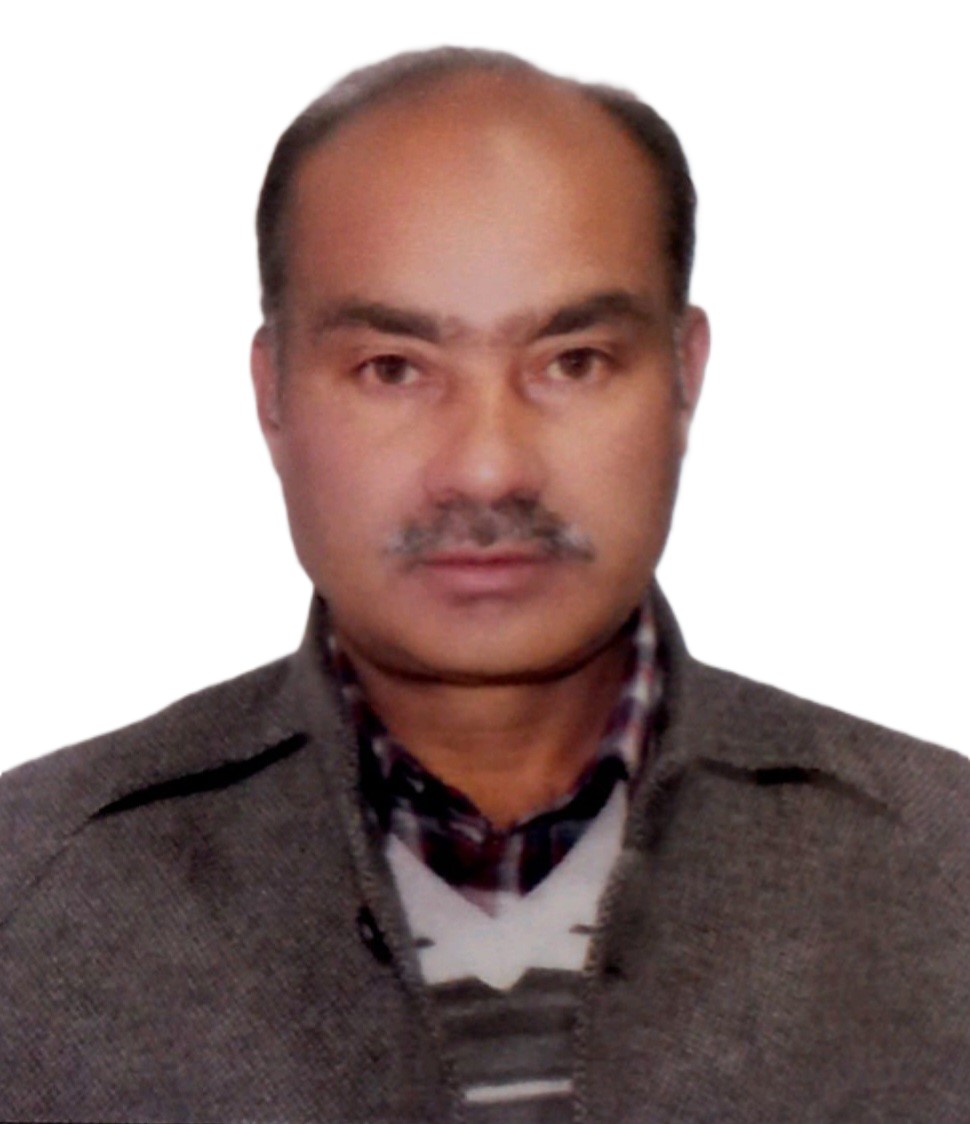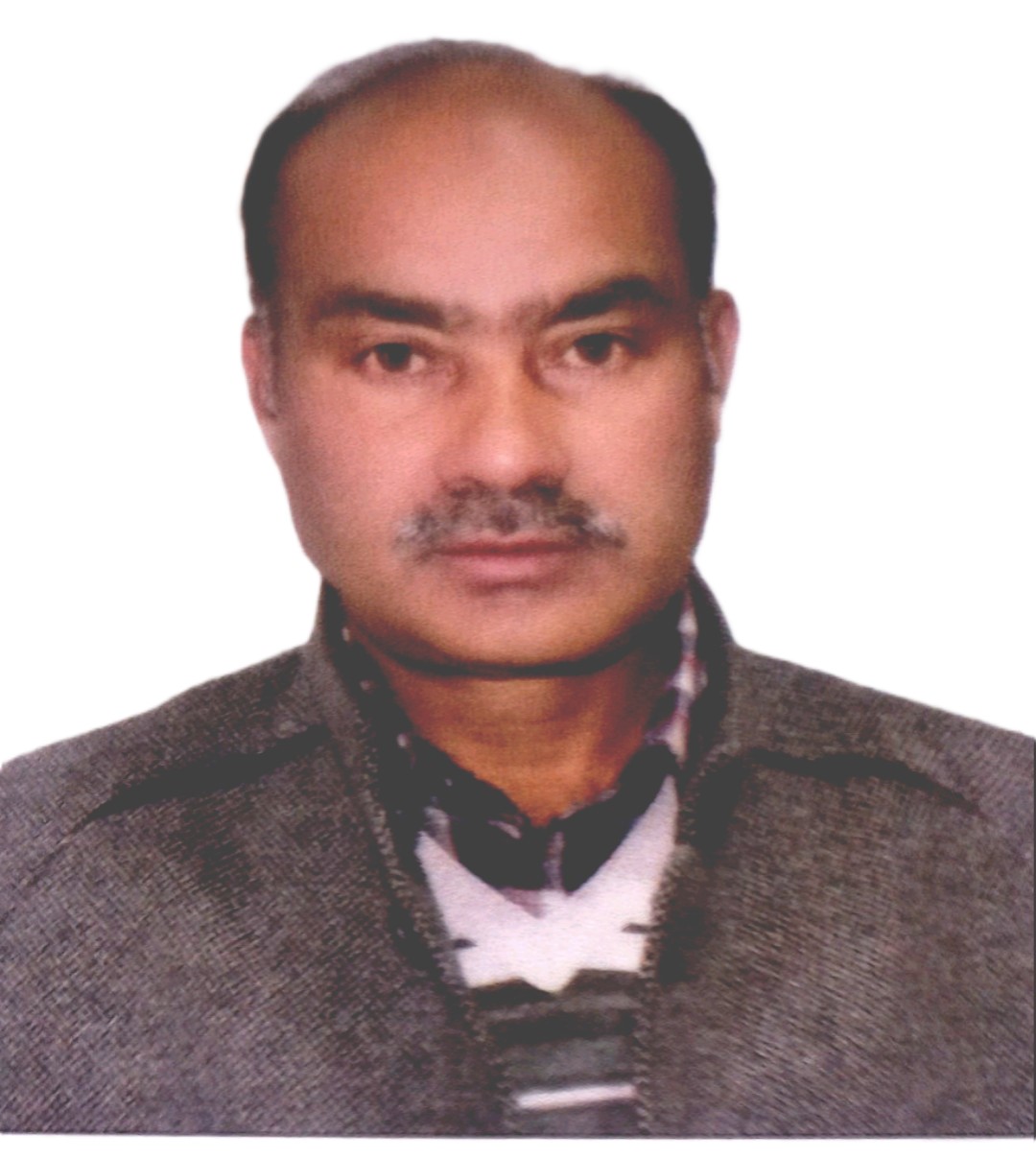ICAR-NBPGR Regional Station, Srinagar

Officer Incharge: Dr. Sheikh M. Sultan
Contact Numbers: +91-0194-2305359
Address: ICAR-NBPGR Regional Station Srinagar, ICAR-CITH Campus, KD Farm, Old Airfield, P.O. Rangreth-191132, Jammu & Kashmir, INDIA
E-mail: mohmmad.sheikh-icar@nic.in
Google Map
NBPGR Regional Station Srinagar was established in 1988 to carry out systematic exploration and germplasm collection in North-Western Sub-Himalayan region of Jammu and Kashmir and high altitude Cold Arid Ladakh. These areas are inhabited by several communities some dwelling in remote and inaccessible areas. Phytogeographical and socio-cultural diversity has led to the evolution of diverse traditional farming systems housing large number of traditional varieties of agri-horticultural crops, wild and weedy relatives. The station has a 10 acre experimental farm for characterization, evaluation and maintenance of germplasm and is located at Karewa Damodhar 14 kms from Srinagar city centre adjacent to ICAR-CITH Srinagar, ICAR-IGFRI RRS Srinagar and Dryland Agriculture Research Station (DARS), SKUAST-Kashmir, KD Farm Budgam.
Objectives- Systematic exploration and collection of local plant genetic resources including crop wild relatives of agri-horticultural crops.
- Characterization, evaluation, documentation and conservation of local crop genetic resources.
- Multiplication, regeneration and supply of germplasm to researchers in the country.
- Creating public awareness about local plant genetic resources and promoting their use.
- Wheat, barley, mustard, apple, walnut, almond
- Other crops: rice, maize, pulses, vegetables, fruits, spices and ornamentals
Salient Achievements
Exploration and Germplasm Collection:
- During last 05 years, 09 exploration and germplasm collection programmes were undertaken from different areas of Jammu & Kashmir and Ladakh including far-flung, remote, underexplored and unexplored places in collaboration with SKUAST- K, SKUAST-J, NRC Seed Spices Ajmer, ICAR-IGFRI RS Srinagar, ICAR-NBPGR RS Shimla and HQ. Besides, the station also collaborated in several exploration and germplasm collection programmes organized by HQ and other ICAR Institutes.
- More than 575 multicrop germplasm accessions including CWR (374 cultivated and 201 wild) comprising of cereals, pseudocereals, millets, pulses, seed spices, oil seeds, medicinal plants, vegetables, fruits, forages etc. were collected.
- Significant collections among others include Aegilops tauschii is a unique potential gene donor for biotic and abiotic stress tolerance in wheat (IC-0628095 to IC-0628108), primitive type of Foxtail millet (Setaria italica) locally called as ‘Sallan’ (IC-0631512), Chenopodium album locally called as ‘Bajarbang’ (IC-0628678), red rice landrace locally called as ‘Lal Dhan’ (IC-0629106) and tobacco (IC-0628676), garden cress (Lepidium sativum) locally called as ‘Halyun’ (IC-0647434, IC-0629133), fababean with purple medium sized seeds (IC-0637972), Zizyphus jujuba subsp. spinosa (IC-0636585) bearing fruits comparable to thorn less cultivated type Zizyphus jujuba subsp. jujuba in terms of fruit size, color and taste, a possible wild progenitor of later. Other notable collections include SHEIKH/SR-993 of Phaseolus coccineus with white flowers and black colored seeds, hawthorn (Crataegus songarica) collection SHEIKH/SR/SS-975, locally called as ‘Adeang’, with tastier and softer dark red fruits, Elymus species having PGR value collected first time from the valley namely Elymus caninus, Elymus dentatus, Elymus dahuricus, Elymus longearistatus and Elymus nutans mostly from Sonamarg area of District Ganderbal, wild olive Olea europaea (SHEIKH/SR-1048) collected first time from remote Gowalata Uri Kashmir and wild melon Cucumis melo subsp. agrestis (IC-0643396) collected from Kashmir. Twelve accessions of unique Brassica napus cv. napobrassica Local, locally called as “Bagtore Saag were collected first time from remote Gurez valley. One accession (SHEIKH/BAB-1136) of Brassica napus cv. napus also collected from Gurez has been found to flower in 75 days after sowing and maturing in 120 days. Daphne oleoides (SHEIKH-1218) or “Kashmir Daphne” has been collected for the first time from Ganderbal area.
Germplasm Characterization and Evaluation:
- During last five years of 2018-19 to 2022-23, nearly 700 germplasm accessions of different crops including wheat, barley, fababeans, common beans, Alliums, Aegilops tauschii and Rubus sp. have been characterized for their agro-morphological traits as per the minimal descriptors and promising genotypes have been identified in each of these crops
- Common bean genotypes collected from areas of Jammu & Kashmir as well as exotic genotypes were evaluated especially for bean common mosaic virus (BCMV) resistance. Based on the symptoms of curling, puckering and yellowing some of these genotypes were identified as resistant ones. Overall, the genotype EC-400454 was identified as a promising candidate genotype for higher yield, resistance to BCMV infection and for early flowering.
- Fourteen (14) accessions of Aegilops tauschii were characterized first time for their morphological traits as per IBPGR descriptors. Aegilops tauschii is an important wild relative of wheat, and the germplasm accessions characterized were conserved in the National Gene Bank.
- Eleven (11) accessions of in vitro conserved blackberry (Rubus fruticosus) plants received from Tissue Culture & Cryo-preservation Unit (TCCU), ICAR-NBPGR New Delhi during early 2021 have been established in the FGB and evaluated for some fruit traits. Most of these accessions start flowering and fruiting in the month of May unlike local wild growing Rubus species which commonly come to flowering and fruiting in the months of July and August. Rubus accession EC560271 has been identified to be promising in terms of overall robust growth, fruit size, weight and also taste. Besides, this accession has produced two fruiting cycles one in the months of May-June and another in August-September.
- A mungbean genotype EC-0398949 has been registered (INGR21224) for cool canopy drought tolerant trait.
- As a cooperating centre of All India Coordinated Research Network on Potential Crops, the station has evaluated 209 entries of fababeans including those under IVT, AVT-I and AVT-II.
Supply of Germplasm:
- Germplasm collected has been supplied to NBPGR HQ for MTS, LTS and Cryopreservation and also to different indenters for research purpose.
- More than 300 germplasm accessions of wheat, barley, oat, field pea, soybean, lentil, rapeseed mustard, Trigonella foenum-graecum, fababeans, minor millets, buckwheat, Carthamus lanatus and Dioscorea deltoidea were supplied to different organizations such as SKUAST (K), SKUAST (J), Kashmir University, Kerala Agricultural University, and to various other Research Organizations of the country.
PGR Awareness Programmes:
- During last five years, six “PGR (Plant Genetic Resources) Awareness Programmes/Biodiversity Fairs” were organized across Jammu & Kashmir and Ladakh by the station under TSP with the help of different Research Stations/KVKs of SKUAST (K) and SKUAST (J): Akchamal, District Kargil (Ladakh) on 25th September, 2018; Nagbal Yusmarg, District Budgam (J&K) on 26th September, 2020; Lam Tral, District Pulwama (J&K) on 30th March, 2021; Zamboor Pattan Uri, District Baramulla (J&K) on 08th April, 2021; Garkon Batalik, District Kargil (Ladakh) on 05th September, 2021and Qazi Morah, District Poonch (J&K) on 25th March, 2023.
- Around 920 local farmers including 292 women participated in these programmes and the farmers were sensitized about local plant genetic resources (PGR); their advantages and importance especially under current changing climatic scenario, need for their protection and conservation as well as their relevance to the livelihood and nutritional security of tribal people.
- Seeds/plants of local landraces, for example alfalfa or Lucerne, rajmash, black soybean, cool-season perennial tall fescue forage grass, field pea, vegetables, ‘ambri’ apple plants etc. were distributed among the participant farmers during these events.
- During these programmes farmers were encouraged to display local crop diversity maintained in their fields and prizes were awarded for maintaining diversity. Some germplasm accessions collected on spot include that of of Phaseolus vulgaris, cucumber, maize, Lipidium sativum, bottle gourd, mustard, chilli, bitter gourd Brassica rapa subsp. rapa, Hordeum vulgare, Setaria italica, Trigonella foenum-graceum, Fagopyrum esculentum, Pisum arvensis, Triticum aestivum, Lactuca sativa and Chinese lantern (Physalis alkenghi) and a list of farmers maintaining traditional crop diversity in their fields was prepared.
Awards/Honours
- Dr. Sheikh M Sultan was awarded Dr. RK Arora Best Paper Award 2019 of the Indian Society of Plant Genetic Resources for the article “Collecting Plant Genetic Resources from Gurez, An Underexplored Remote Valley of Jammu and Kashmir State of India” by Sultan, SM, K Pradheep, SK Raina and SP Ahlawat published in Indian Journal of Plant Genetic Resources, 2019, 32(2): 174 – 180.
- Dr. Susheel Kumar Raina received “Distinguished Scientist Award” on the occasion of three Days International Conference “Advances in Agricultural, Veterinary and Allied Sciences for Improving Livelihood and Environmental Security (AAVASILES-2022)” September 28-30, 2022, ICAR-Indian Grassland and Fodder Research Institute, Regional Research Station, Srinagar, ICAR-National Agricultural Higher Education Project, Birsa Agricultural University, Ranchi and National Agriculture Development Cooperative Ltd. Baramulla, held at Gandhi Bhawan, University of Kashmir, India.
- Dr. Susheel Kumar Raina awarded second prize in oral presentation award at AAVASILES-2022 organized jointly by ICAR-IGFRI, NAHEP and NADCL held at held at Gandhi Bhawan, University of Kashmir (India) from September 28 to 30, 2022
- Dr. Susheel Kumar Raina awarded best poster award by BOTANIQUE: The Botanical Society of Hansraj College on the occasion of National Science Day on 2nd February 2022.
- Dr. Susheel Kumar Raina awarded first prize in oral presentation at “International Conference on Natural Science and Green Technologies for Sustainable Development (NSTD-2022)” organized by National Environmental Sciences Academy (NESA) and University of Goa, held from 30th November to 2nd December, 2022 at University of Goa.
Major Activities
- Exploration and germplasm collection of trait specific, unique and endemic crop diversity of the region.
- Exploration and germplasm collection of Crop Wild Relatives from the region.
- Identification and popularization of niche/potential climate resilient crops of the region.
- Creating public awareness about values, importance and advantages of local plant genetic resources and need for their conservation especially in tribal communities.
- Promoting participatory on-farm conservation and in-situ conservation of plant genetic resources.
Publications/Research Papers
2020
| 1. | Sultan, SM, K Pradheep, SK Raina and SP Ahlawat (2019). Collecting Plant Genetic Resources from Gurez, An Underexplored Remote Valley of Jammu and Kashmir State of India. Indian J. Plant Genetic Resources, 32(2): 174-180 |
| 2. | Raina, SK, J Rane, N Raskar, AK Singh, V Govindasamy, M Kumar, SC Ekatpure and PS Minhas (2019). Physiological traits reveal potential for identification of drought tolerant mungbean [Vigna radiata (L.) Wilczek] genotypes under moderate soil-moisture deficit.. Indian Journal of Genetics and Plant Breeding, 79(2): 427-437. DOI: 10.31742/IJGPB.79.2.6 |
| 3. | Raina, SK, N Raskar, LK Aher, AK Singh, DP Wankhede, J Rane and PS Minhas (2019). Variations in ethylene sensitivity among mungbean [Vigna radiata (L.) Wilczek] genotypes exposed to drought and water logging stresses.. Turkish Journal of Botany, 43: DOI: 10.3906/bot-1902-33 |
2015
| 1. | Sultan SM, N Dikshit and N Sivaraj (2015). Diversity, distribution and conservation of Saffron Thistle (Carthamus lanatus L.) in mid-high altitude temperate zone of Jammu and Kashmir, India: A DIVA-GIS study. Tropical Ecology, 56(3): 303-310 |
2014
| 1. | Sultan SM, SA Dar, SA Dand and N Sivaraj (2014). Diversity of common bean in Jammu and Kashmir, India: a DIVA – geographic information system and cluster analysis. Journal of Applied and Natural Science, 6(1): 226-233 |
2013
| 1. | Sultan SM and Omvir Singh (2013). Peudocereals and millets – the lost crops of Kashmir. Genetic Resources and Crop Evolution. Genetic Resources and Crop Evolution, 60(3): 1191-1199. (DOI 10.1007/s10722-013-9958-3) |
| 2. | Sultan SM and LV Subba Rao (2013). Germplasm collection from last remnants of rice landrace genetic diversity in high altitude areas of Kashmir Himalayas. International Journal of Conservation Science, 4(4): 467-476 |
Projects
Research programme(code, title, programme leader)
PGR/PGC–BUR-SRI-01: Augmentation, Characterization, Evaluation, Maintenance, Regeneration, Conservation, Documentation and Distribution of Germplasm Resources of various crops from Jammu & Kashmir region [Sheikh M Sultan (PI), Susheel Kumar Raina (CoPI)]
Staff

